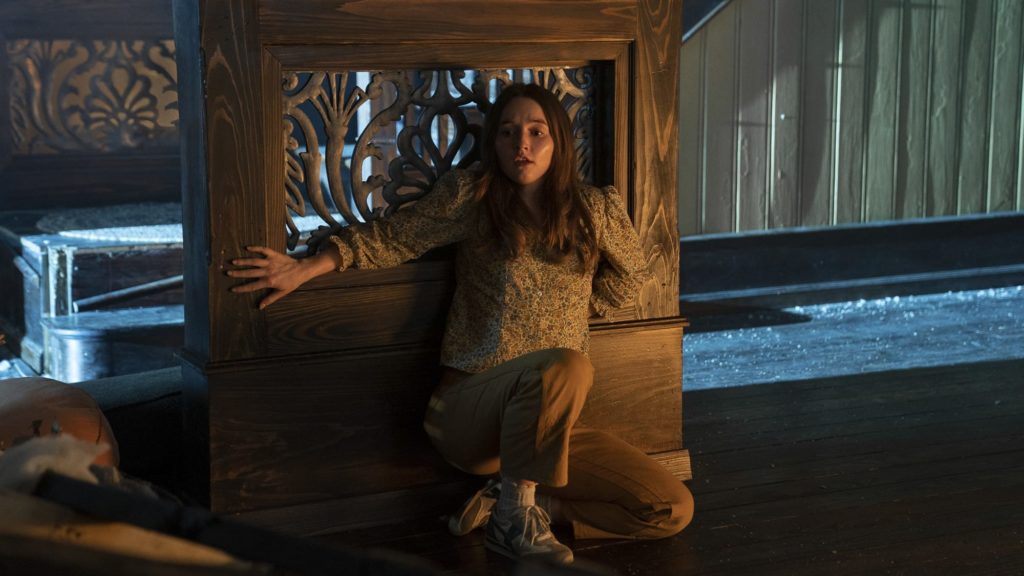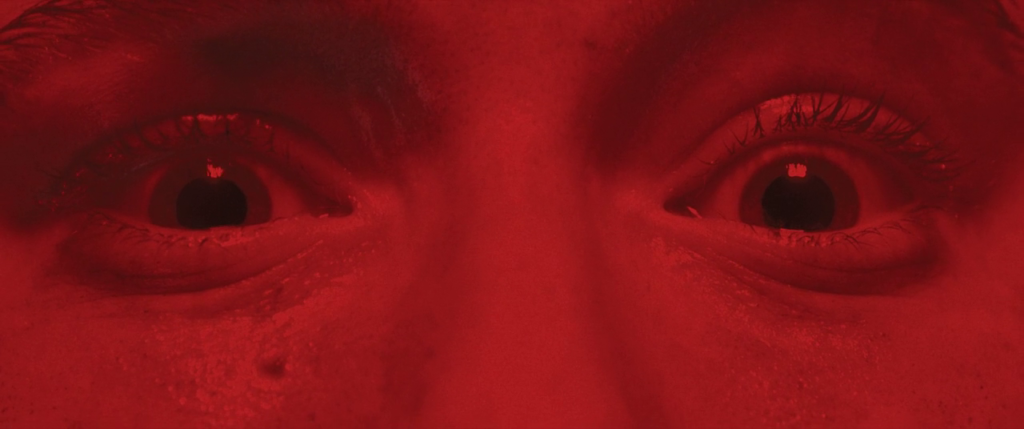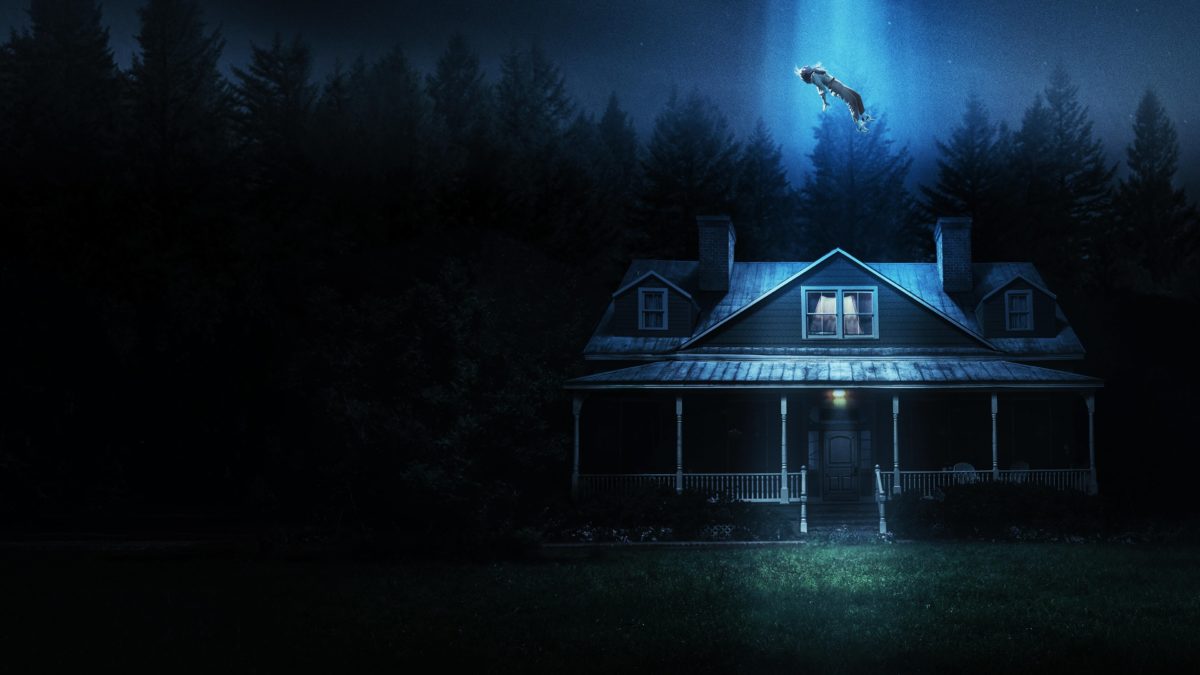Close encounters of the quiet kind
You know what’s scary? Trauma! This seems to be the thesis of most horror films these days, and now I suppose even alien invasion thrillers too. No One Can Save You, the latest genre mashup from Brian Duffield, writer-director of the unexpected teen zinger Spontaneous, is a flawed but fun high concept sci-fi film.
Brynn (Kaitlyn Dever) lives an isolated existence ever since the death of her mother and best friend Maude, the latter of which was caused by Brynn (a point obvious from the start, but still treated as a surprise in a flashback). One day, aliens show up. The film’s first two acts play as a tightly wound home invasion thriller, with uncanny, putty-faced aliens stalking a silent Brynn around her house. Duffield wrings genuine tension out of the setup, with several excellently-crafted sequences of Brynn struggling to evade her pursuers.
Duffield brings a gimmick to all of this: The script is completely dialogue-free. It’s Signs-meets-A Quiet Place. Brynn lives by herself, and the surrounding town shuns her since she caused her friend’s death years ago, so there’s no one to talk to her. And though she fills her house with music and a Marwen-esque simulacrum world to play in, she remains 100% mute. Her silence becomes a kind of penance for the guilt that haunts her.

Where the film really goes wild is in the wonderful, gonzo third act, which features some provocative and squirm-inducing payoffs on images and ideas introduced earlier in the film. This conclusion features multiple gut-wrenching moments, most memorably a red-lit paralysis probing scene that made me want to gag. Duffield is clearly in the mode of throwing-spaghetti-against-the-wall, lobbing a dozen zany images at the screen in the hopes that something will shock or provoke wonder.
Not every absurdist twist lands perfectly, and it hardly holds together. The film’s later shift into quasi-psychedelia doesn’t quite fit with the intimate sci-fi/thriller blend Duffield had carefully built through the film’s first two thirds. But he brings an admirable creative spirit here. Contrast this with the misfire Infinity Pool, whose third act “twists” are juvenile middle fingers to the audience and pseudo-intellectual nothings. Duffield pushes the boundary of coherence, but with artistic integrity.
I frankly think Duffield boxed himself too tightly into a theme. Had he dispensed with the “trauma” character motivation and focused more broadly on Brynn’s fractured relationship with the outside world, the film might have flowed a bit better. The payoff could likely have felt more thoughtful and complete, similar to how Spontaneous built beautifully to its teenage apocalypse set piece, my favorite movie scene of 2020.

Still, No One Can Save You works more often than it doesn’t. At the center is an excellent Kaitlyn Dever, whose naturally offbeat energy makes her simultaneously believable as an awkward recluse and compelling as a classic “scream queen.” Her slightly gawky physicality and hugely expressive face make Brynn feel richer and more human than the typical thriller heroine.
It’s an inconsistent work containing genuine flashes of brilliance. Here’s hoping studios continue giving Duffield the money and freedom to swing for the fences. Even a minor sophomore slump confined to streaming contains more inspired ideas and energy than most thrillers manage at their best.
Is It Good?
Good (5/8)
Dan is the founder and head critic of The Goods. Follow Dan on Letterboxd. Join the Discord for updates and discussion.

